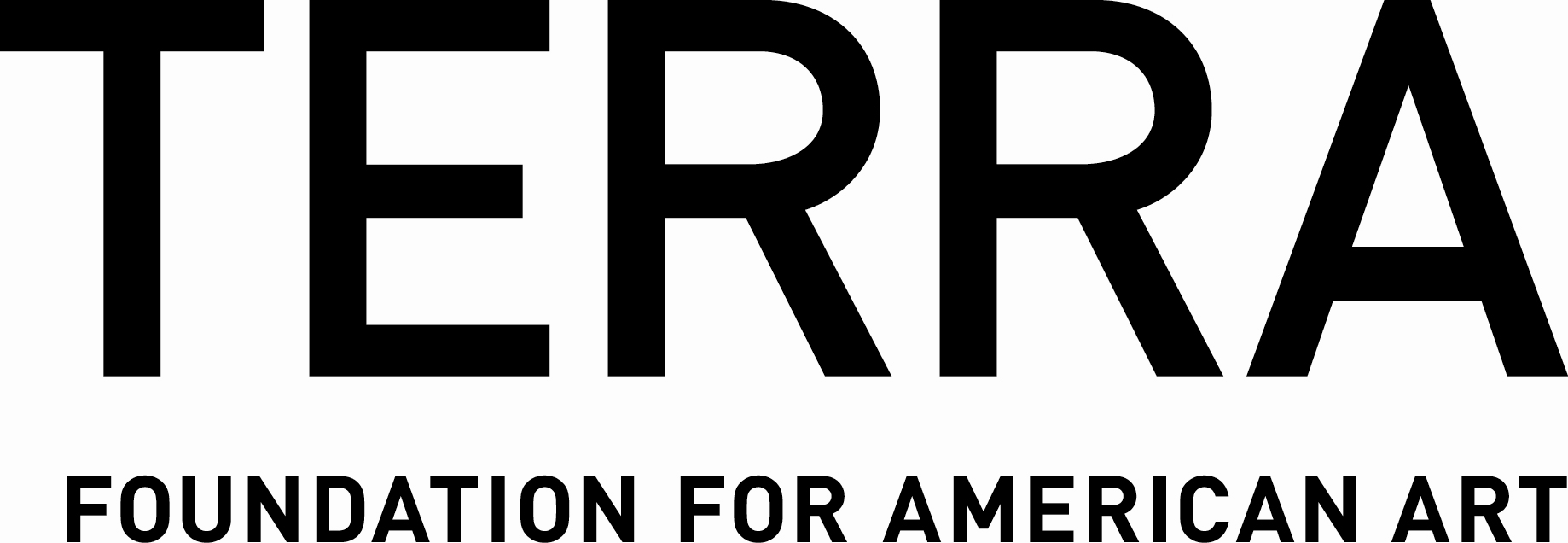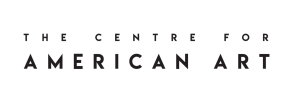‘American Art Archives in Britain’ explores the stories of, and stories contained in, archival records and documents generated by American artists, artworks and artworld activities in Britain. Few UK holdings match the breadth and depth of material on American artists in US archives, and so this project facilitates consideration of what constitutes an archive, the meaning of scarcity as opposed to abundance of information, and the ways small details add to, frame, and disrupt established narratives. The project also provides opportunity to reflect on the nature of archival research in transatlantic art histories.
Working in dialogue, researchers on the project have developed case studies that explore the photographic archives at Senate House Library relating to the transatlantic scientific investigation of the spiritualist medium ‘Margery’ Crandon in the mid-1920s; the 1958 ‘Abstract Impressionism’ exhibition that brought works by Joan Mitchell, Sam Francis, and Philip Guston to the University of Nottingham and other UK galleries; Carolee Schneemann’s collaboration with Beau Geste Press during her time in the UK in the early 1970s; the acquisition and display of a significant collection of American Pop Art, including works by Andy Warhol and Roy Lichtenstein, at Wolverhampton Art Museum during the 1970s; and the way that works by American photographers, originally published in photobooks, are catalogued and displayed as “orphaned images” in UK public and private collections.
This two-day symposium will feature papers presenting these case studies, roundtable discussion of the questions about archives the project raised, and a keynote talk by Professor Michael Leja exploring the kinds of archival sources included in his recent publication Art of the United States, 1750–2000, co-authored with Professor John Davis.
Organised by Professor David Peters Corbett (The Courtauld), Dr John Fagg (University of Birmingham) and Dr Emma Merkling (The Courtauld).
This event is kindly supported by the Terra Foundation for American Art.
Speakers
Michael Leja (University of Pennsylvania) is James and Nan Wagner Farquhar Professor of History of Art at the University of Pennsylvania. He is the author of Reframing Abstract Expressionism: Subjectivity and Painting in the 1940s, which was awarded the Charles Eldredge Prize for distinguished scholarship in American art in 1996; Looking Askance: Skepticism and American Art from Eakins to Duchamp, which won the Modernist Studies Association book prize in 2005; and coauthor of Art of the United States 1750-2000: Primary Sources (2020). A book titled A Flood of Pictures, which explores changes in pictorial forms and in social relations associated with the industrialization of picture production and the development of a mass market for images in the mid-nineteenth century US, is forthcoming.
Mark Rawlinson’s (University of Nottingham) current research explores the ‘minor histories’ of post war American photography and relates to the renaissance of the medium in the USA during the 1970s, a renaissance whose origins can be traced back the GI Bill and the Photography teaching programmes of the 1950s onwards. He argues that minor histories more usefully account for the divergent, experimental and often incoherent forms of practice that are the predominant focus of this project. By ‘minor histories’ he does not mean qualitatively less important or overlooked, many of the photographers and curators of interest are not obscure or unknown. However, the dominant interpretative discourse of photography, it’s ‘major history,’ has reduced many to the realm of ‘historical context.’
Ashley Gallant (University of Nottingham / Sheffield Museums) is a curator and PhD candidate. As a curator he cares for the Ruskin Collection, a teaching collection including 19th century books of prints, drawings and early photography. His PhD research focuses on the intersection of copyright law and the museum. Arguing that museum collections should be copyright free to encourage use, and that a form of object and property based ‘copyright thinking’ has become the dominant curatorial thought method. He argues that by challenging this we can publicly own, and use, more diverse and experimental forms of artistic practice.
John Fagg (University of Birmingham) is Senior Lecturer in American Literature and Culture at the University of Birmingham. He is the author of On the Cusp: Stephen Crane, George Bellows and Modernism (2009) and several articles and book chapters focusing on early-twentieth-century American literature and visual art, including “Chamber Pots and Gibson Girls: Clutter and Matter in John Sloan’s Graphic Art” (2015). He has also contributed catalogue essays for exhibitions including Simple Pleasures: The Art of Doris Lee (2021) and the National Portrait Gallery’s The Sweat of Their Face: Portraying American Workers. He has recently completed a second book, Re-envisioning the Everyday: American Genre Scenes, 1905-1945.
Karen Di Franco (Glasgow School of Art) is a curator and writer, working in the fields of exhibition making and art historical research. She specialises in post-1960s feminist art practice and artists’ publishing, alongside the contexts of iteration, fiction writing and performance as points of enquiry in her work. She is Programme Leader of MLitt Curatorial Practice (Contemporary Art) at Glasgow School of Art and Programme Curator at Chelsea Space, Chelsea College of Arts, UAL. Her PhD research titled Embodied Iteration: Materialising the Language of Writing and Performance in Women Artists’ Publishing, 1968–1979 was funded by the AHRC collaborative Doctoral Partnership and based between the University of Reading and Tate Britain (2015-2020).
Emma Merkling (The Courtauld) is Terra Foundation Postdoctoral Fellow at the Centre for American Art (The Courtauld). Her research focuses on the entangled histories of visual culture, science, and occult belief in the US and Britain c. 1870–1930. Emma received her PhD in History of Art from The Courtauld in 2021. Previously, she was Postdoctoral Fellow on the AHRC-funded project ‘The Media of Mediumship: Encountering the Material Culture of Modern Occultism in Britain’s Science, Technology, and Magic Collections’, a collaboration between University of Stirling, Senate House Library, and the Science Museum. Emma co-hosts ‘Drawing Blood’, a podcast about art history, the history of science and medicine, and the macabre; and teaches nineteenth-century art at The Courtauld.
Lucy Bradnock (University of Nottingham) is Associate Professor of Art History at the University of Nottingham and incoming Editor of Art History. She is author of No More Masterpieces: Modern Art After Artaud (Yale University Press, 2021) and co-editor of Lawrence Alloway: Critic and Curator (Getty, 2015) and Pacific Standard Time: Los Angeles Art 1945-1980 (Getty, 2011). Her writing has also appeared in Art History, Oxford Art Journal, Art Journal, and the Journal of the Archives of American Art, and in catalogues for the exhibitions Specters of Artaud: Language and the Arts circa 1952 (Museo Nacional Centro de Arte Reina Sofia, 2012), Mark Dion: Misadventures of a 21st-Century Naturalist (ICA Boston, 2017), Delirious: Art at the Limits of Reason, 1950–1980 (Metropolitan Museum of Art, 2017), and Light + Space (Copenhagen Contemporary and Light Art Space Berlin, forthcoming 2022). Her new research explores ecocritical art histories of regionalism and art publics in the American Midwest.
Programme
Day 1 – Friday 6th May
3.00pm – Welcome
3:10pm – Paper 1, John Fagg (University of Birmingham)
3:30pm – Paper 2, Karen Di Franco (Glasgow School of Art)
3.50pm – Q&A
4.10pm – Break
4:30pm – Keynote and Q&A, Michael Leja (University of Pennsylvania)
5.30pm – Finish
Day 2 – Saturday 7th May
3pm – Welcome
3:10pm – Paper 3, Emma Merkling (The Courtauld)
3:30pm – Paper 4, Mark Rawlinson (University of Nottingham) and Ashley Gallant (University of Nottingham/Sheffield Museums)
3:50pm – Paper 5, Lucy Bradnock (University of Nottingham)
4:10pm – Q&A
4.30pm – Break
4:50pm – Roundtable, Q&A, and closing remarks
6.00pm – Finish







